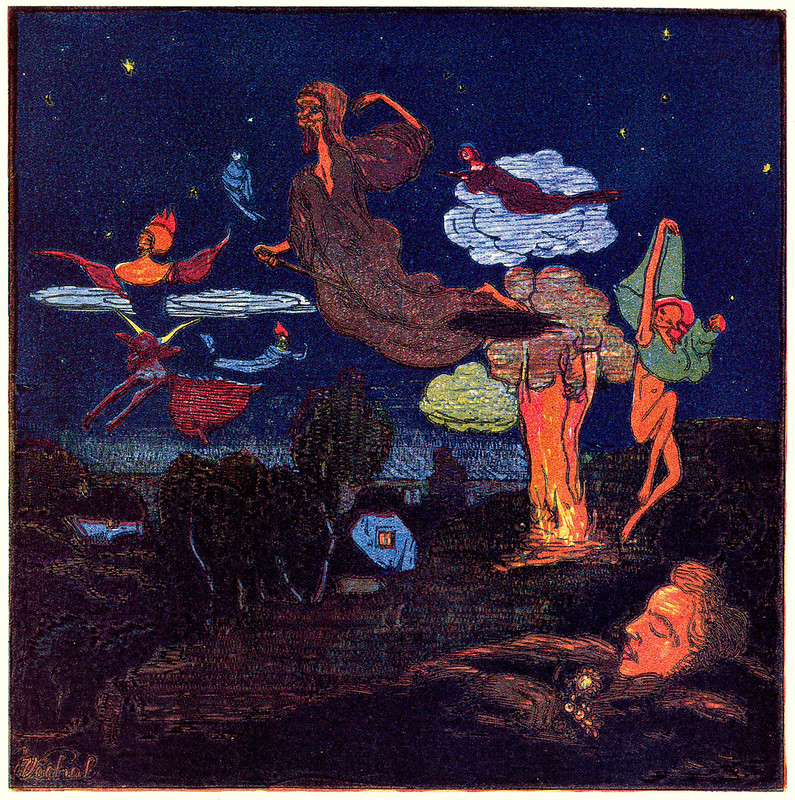 A Walpurgis Night's Dream, 1914
A Walpurgis Night's Dream, 1914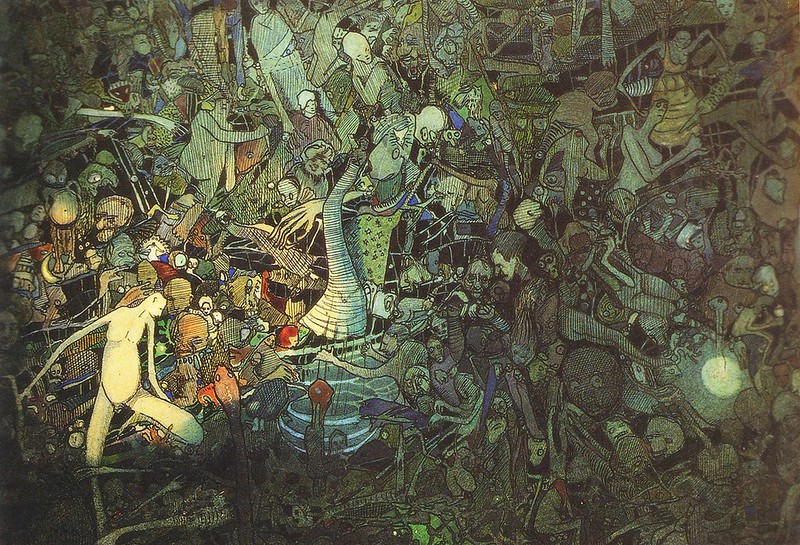 Elementary Plan of Passions and Instincts
Elementary Plan of Passions and Instincts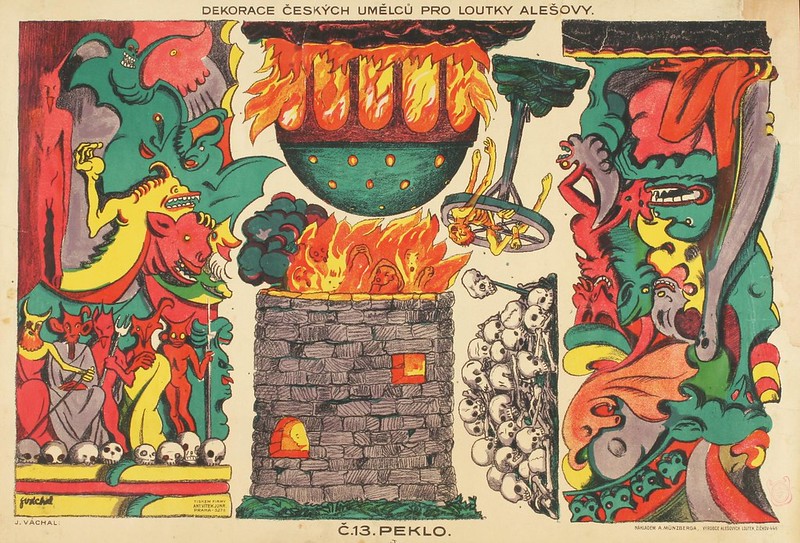 Decorations for Czech Puppets
Decorations for Czech Puppets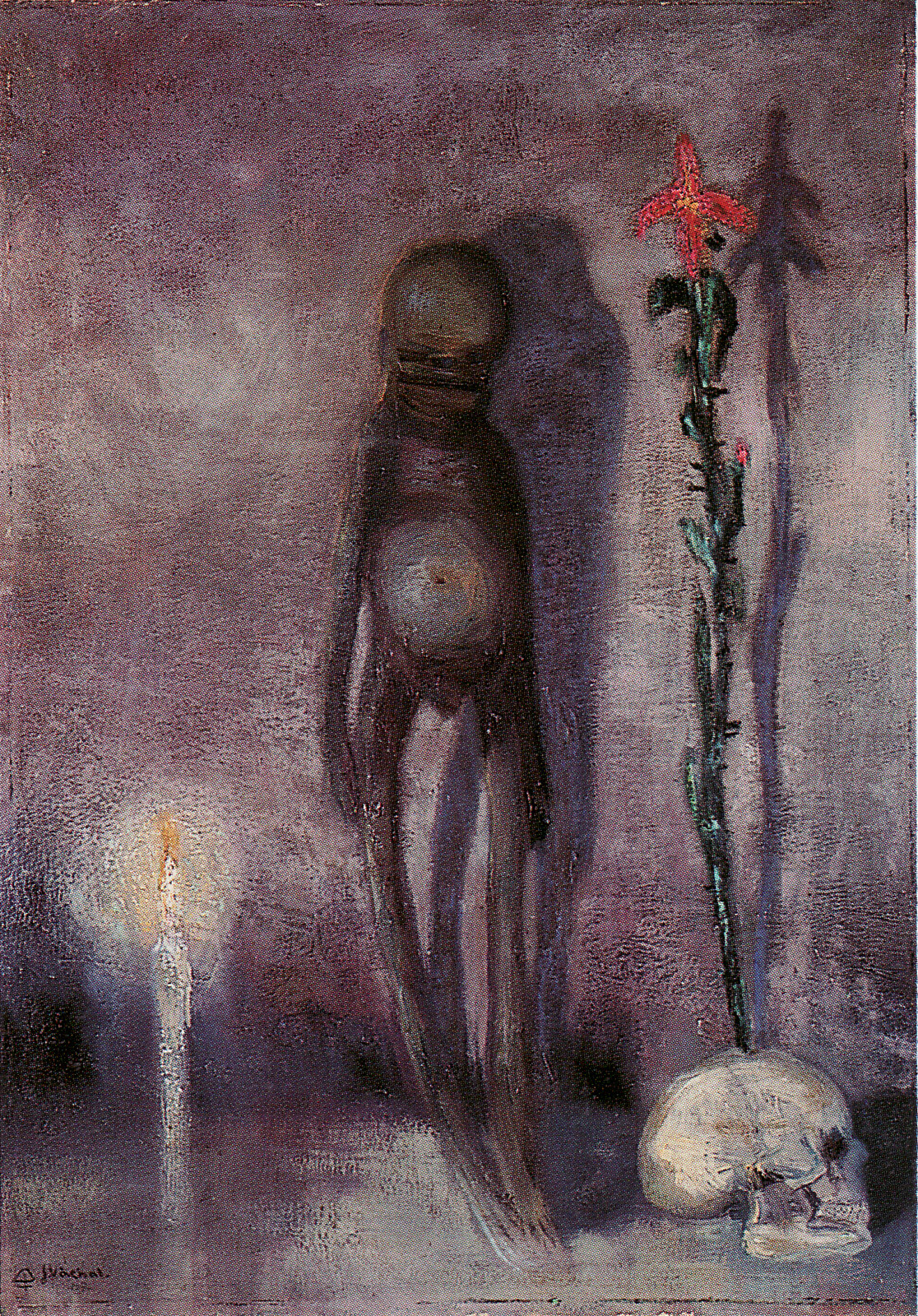 Incubus (Succubus), 1907
Incubus (Succubus), 1907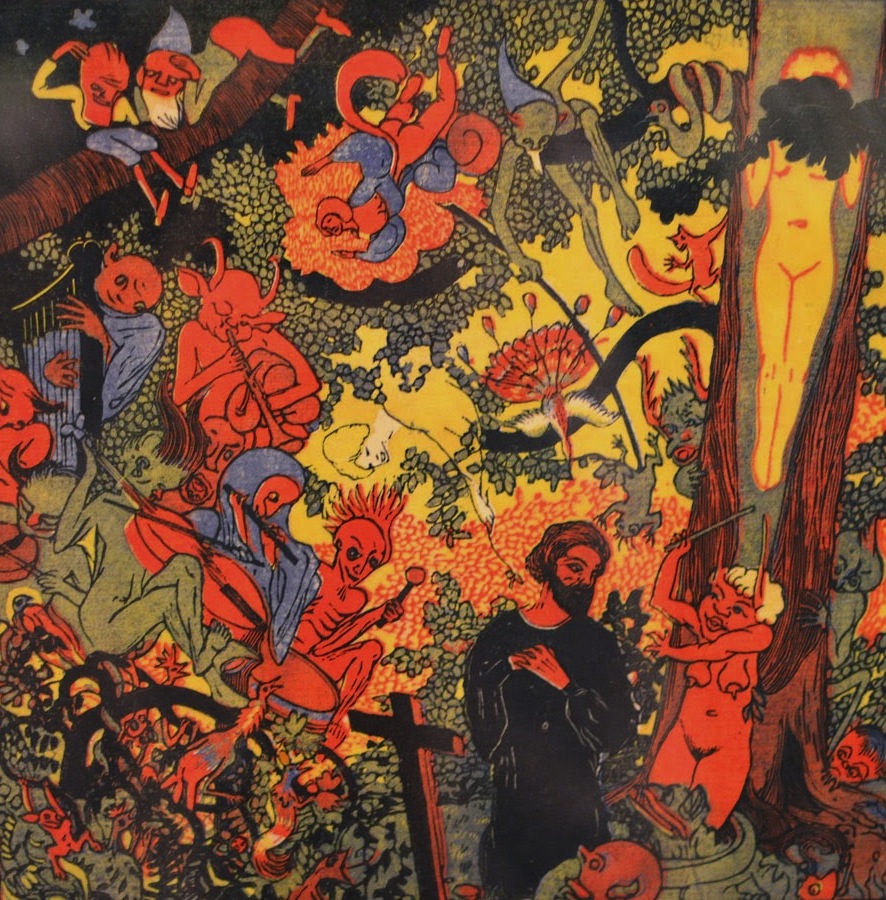 Temptation of Saint Anthony
Temptation of Saint Anthony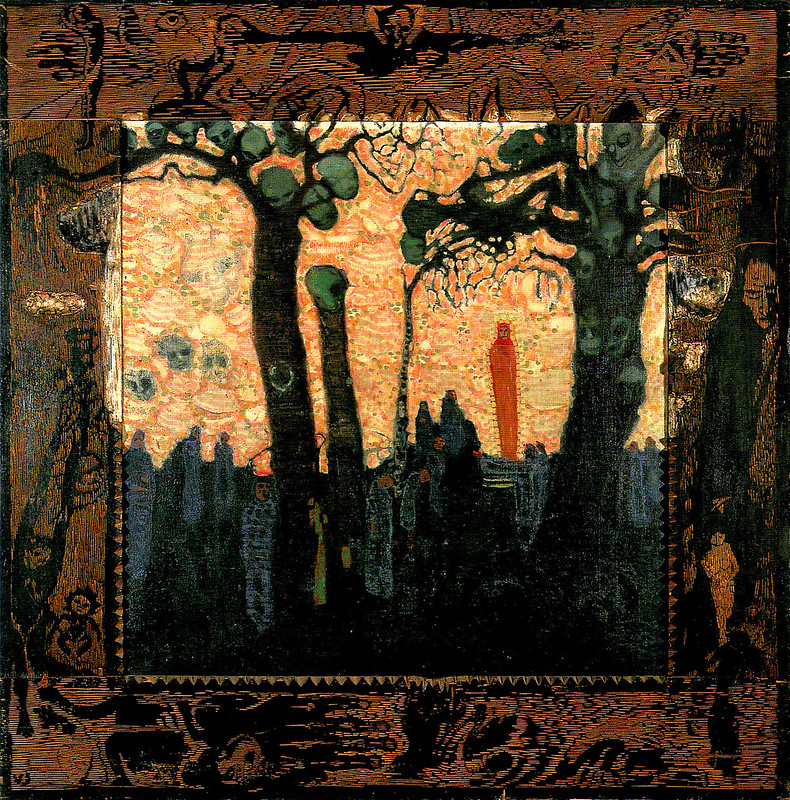 Satanic Invocation, 1909
Satanic Invocation, 1909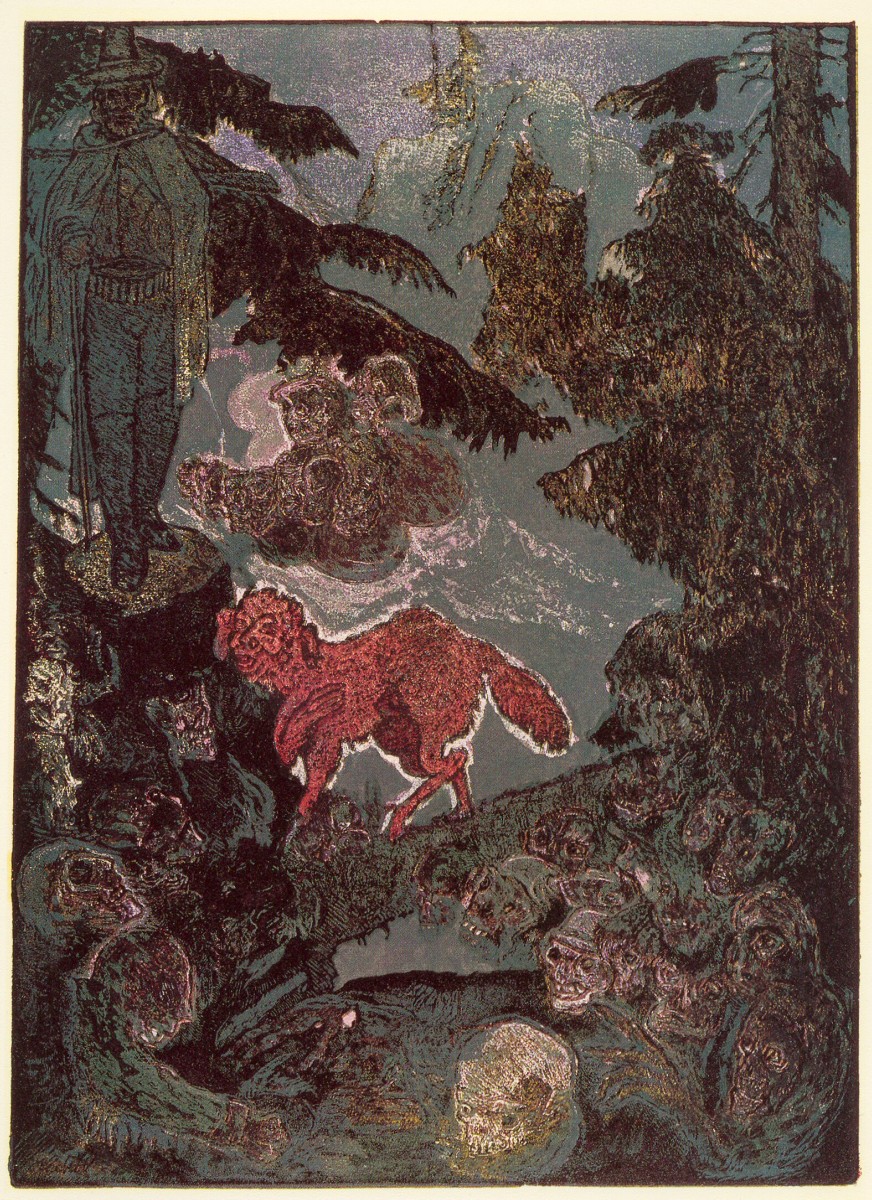 Samiel on Sonnberg
Samiel on Sonnberg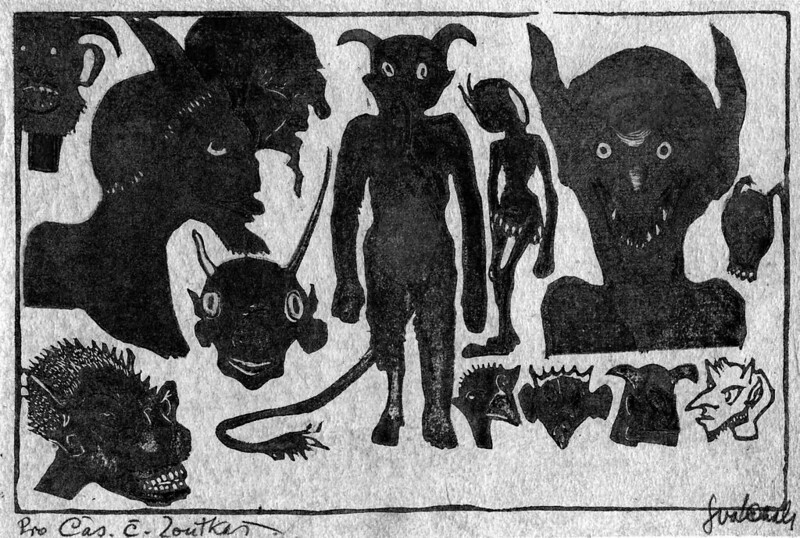 Demon Heads
Demon Heads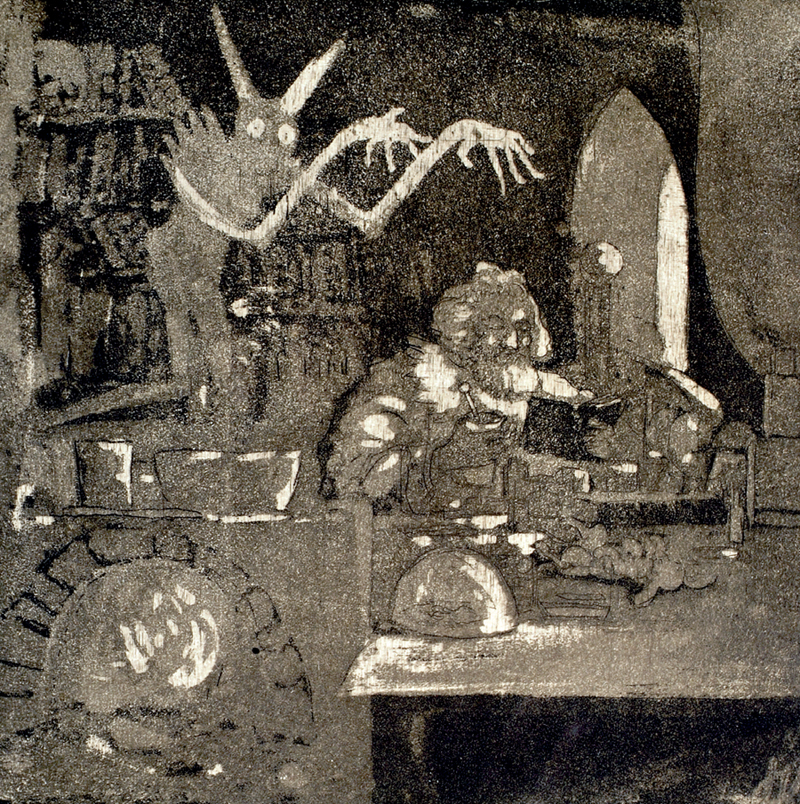 Alchemist, 1910
Alchemist, 1910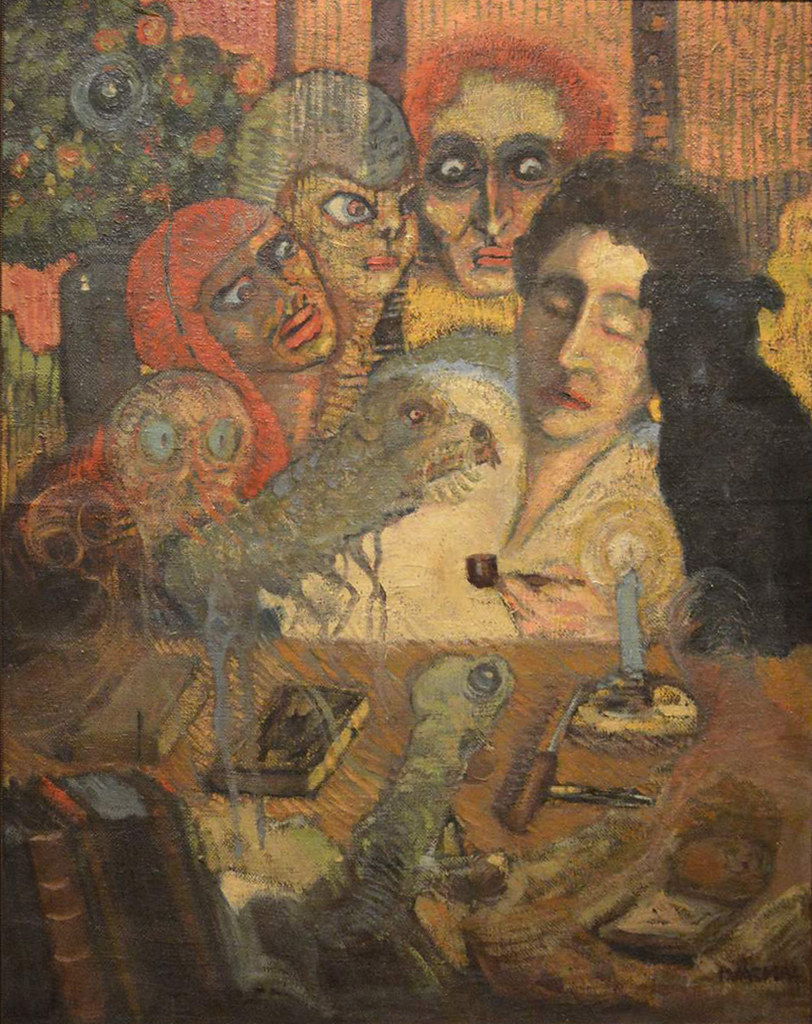
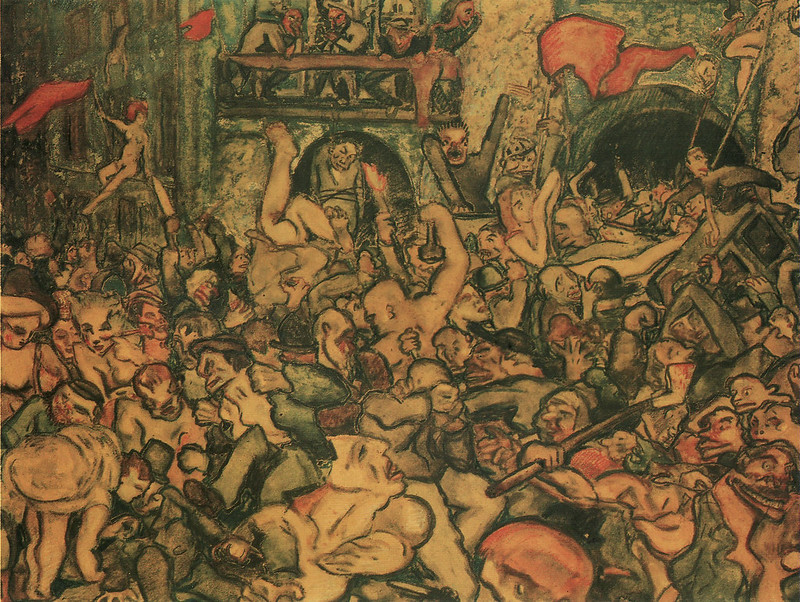 Revolution, 1928
Revolution, 1928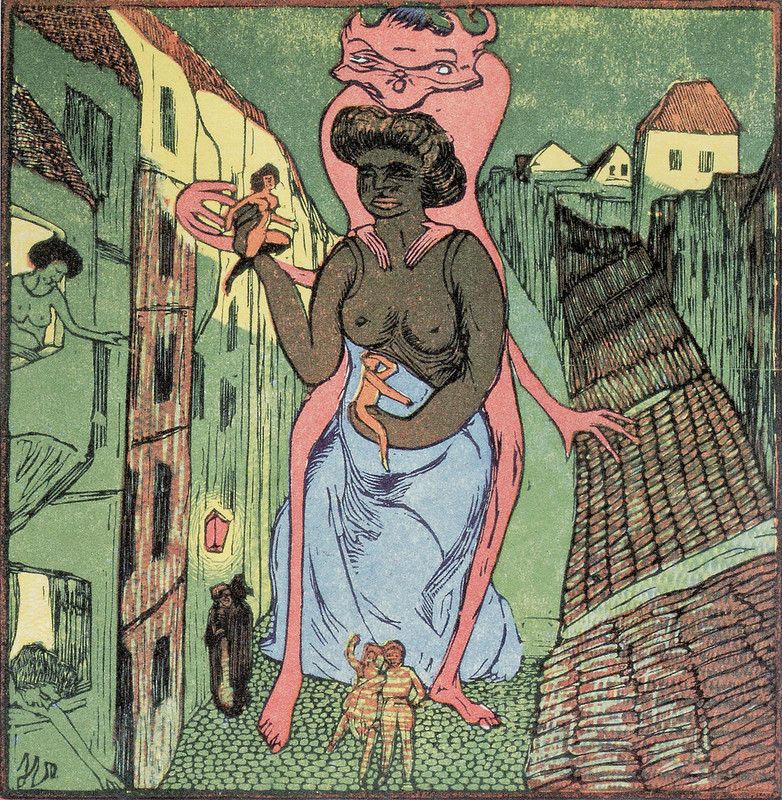 The Cloaca of the Street, 1910
The Cloaca of the Street, 1910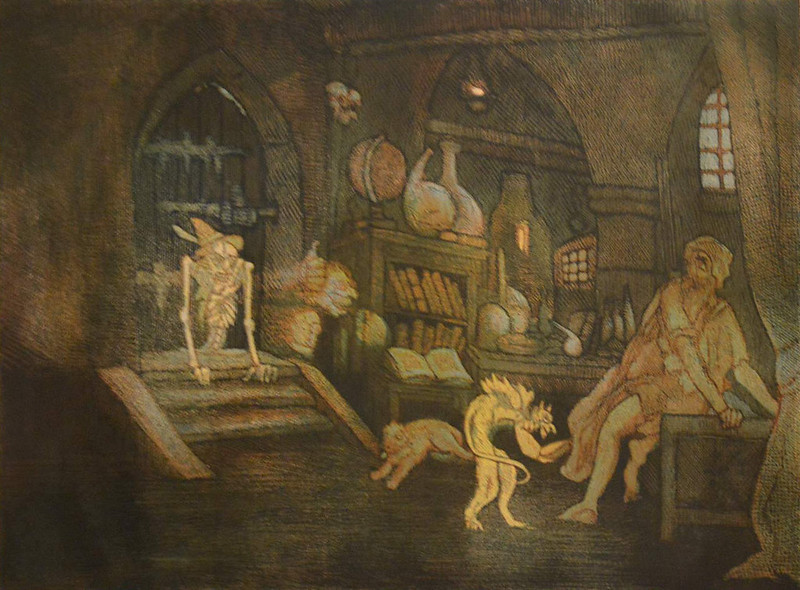
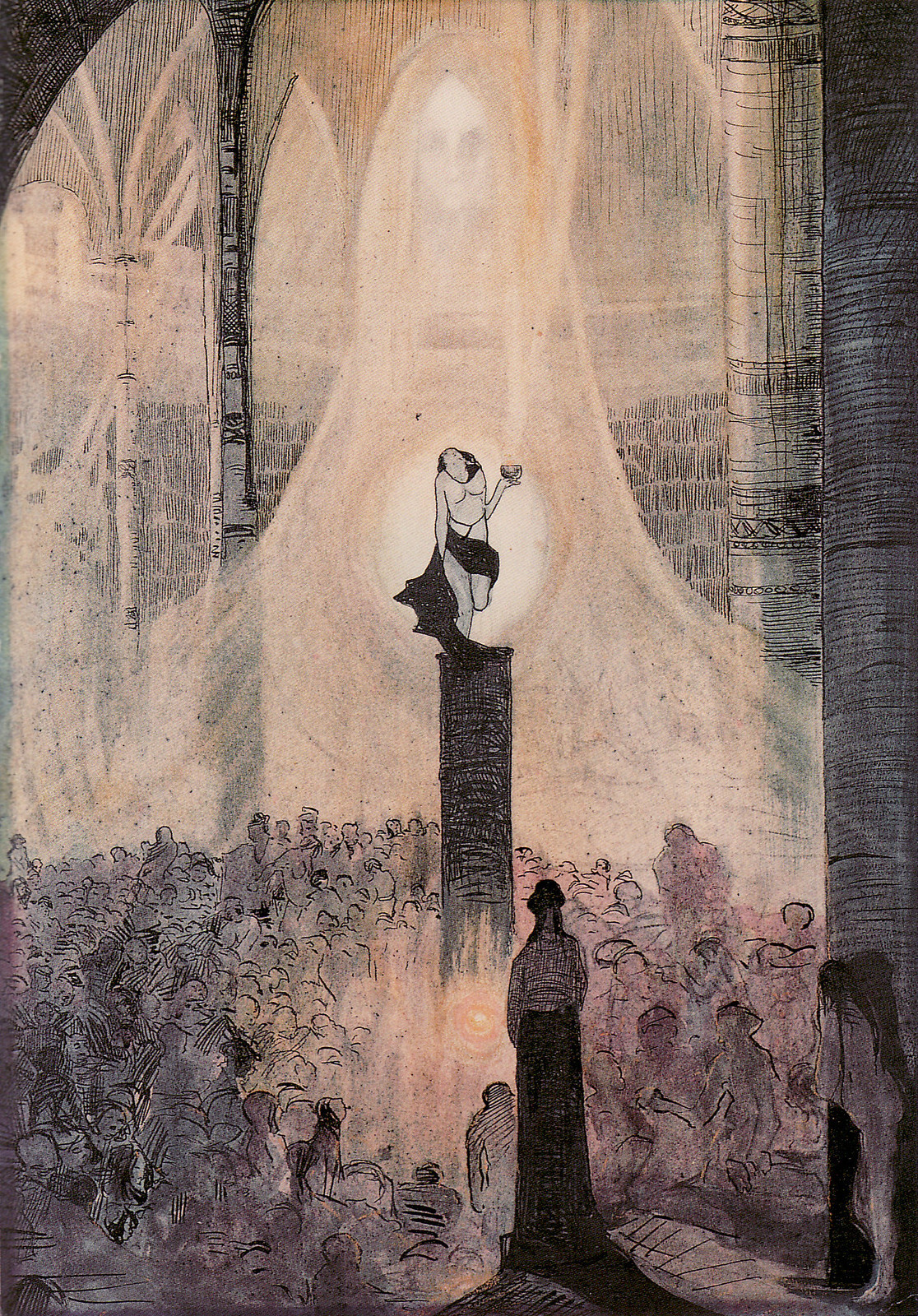 Astarte's Mass, 1907
Astarte's Mass, 1907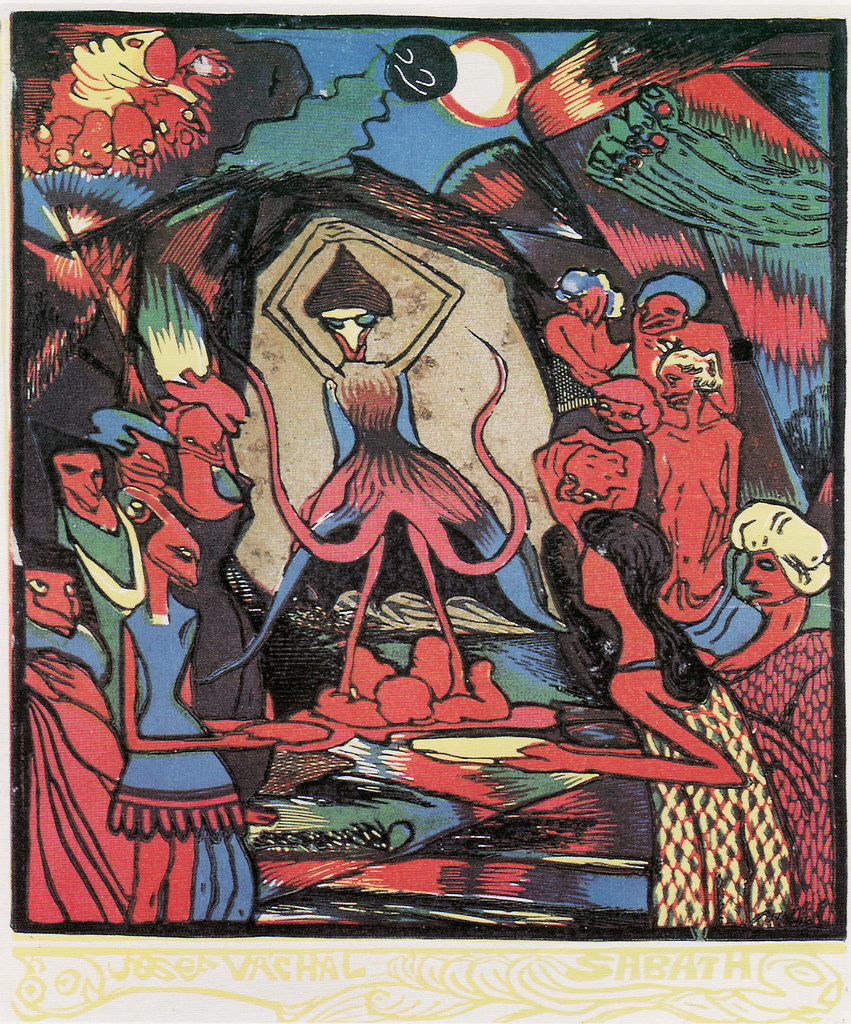 Sabbath, 1911
Sabbath, 1911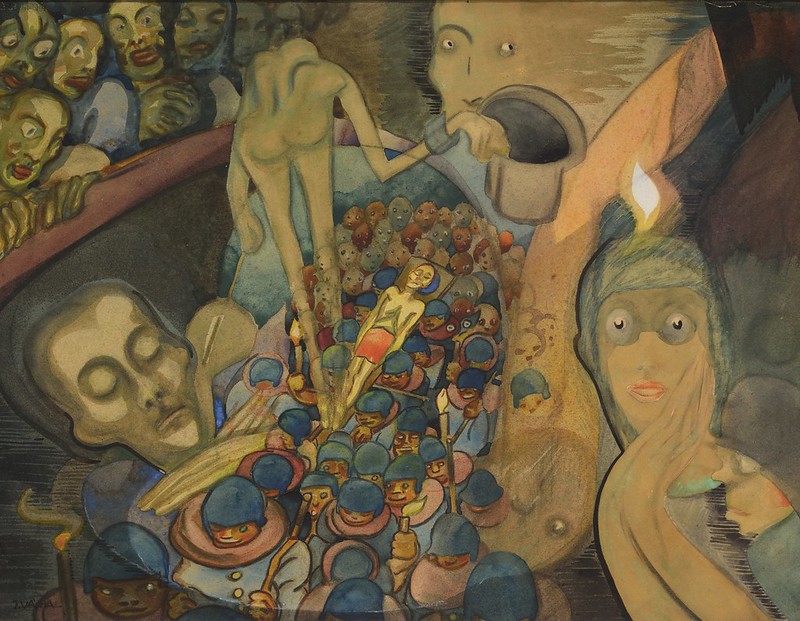 Dead Man's Dream, 1918
Dead Man's Dream, 1918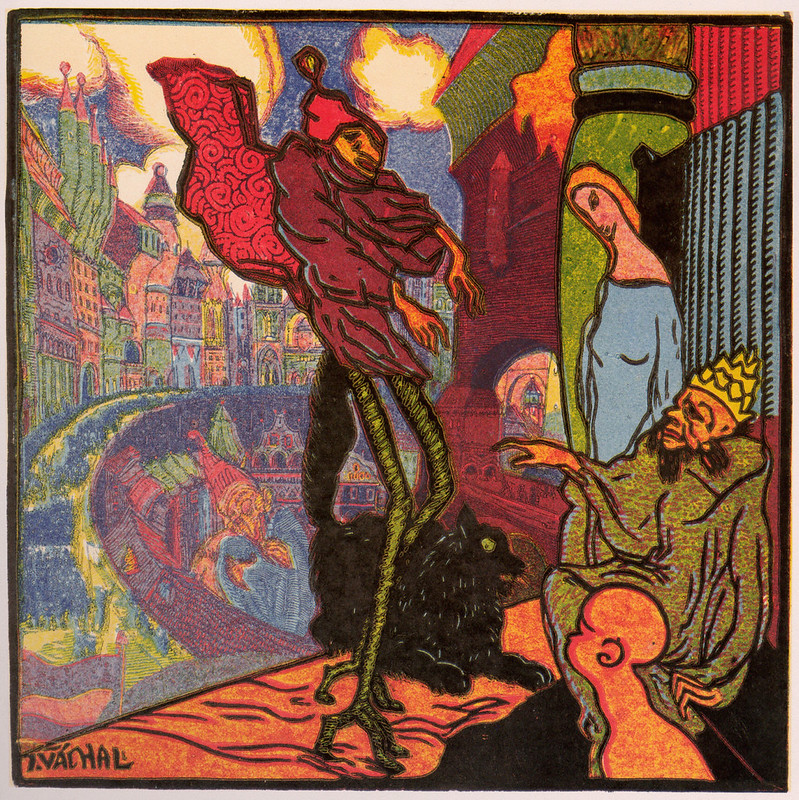 Messenger, 1915
Messenger, 1915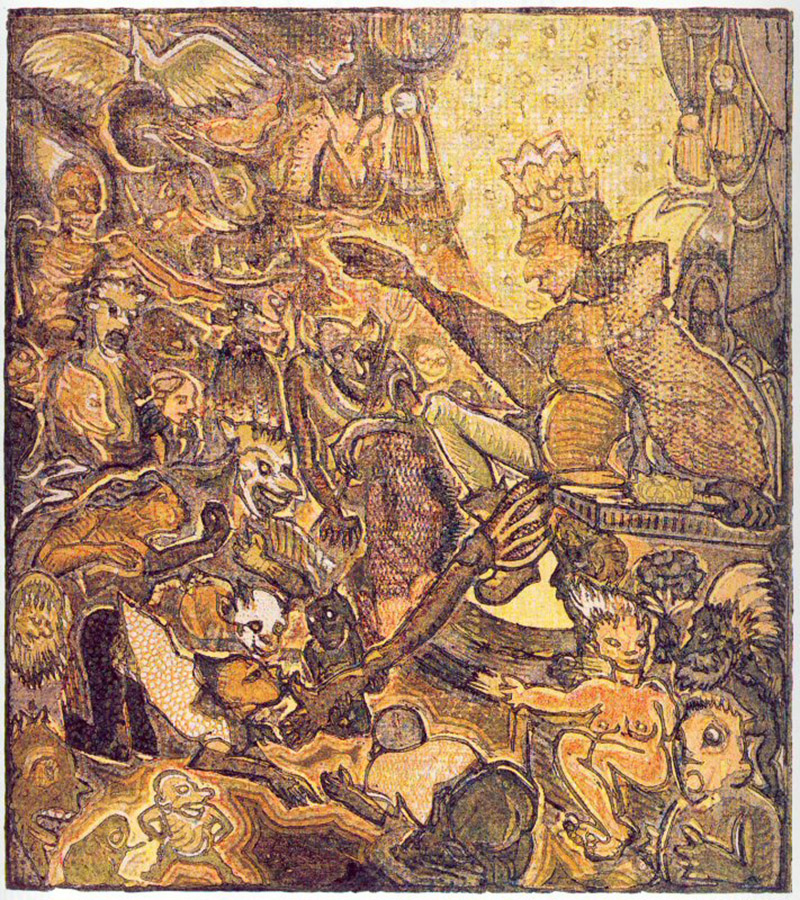 Josef Belial, illustration from "The Devil's Garden," 1924
Josef Belial, illustration from "The Devil's Garden," 1924 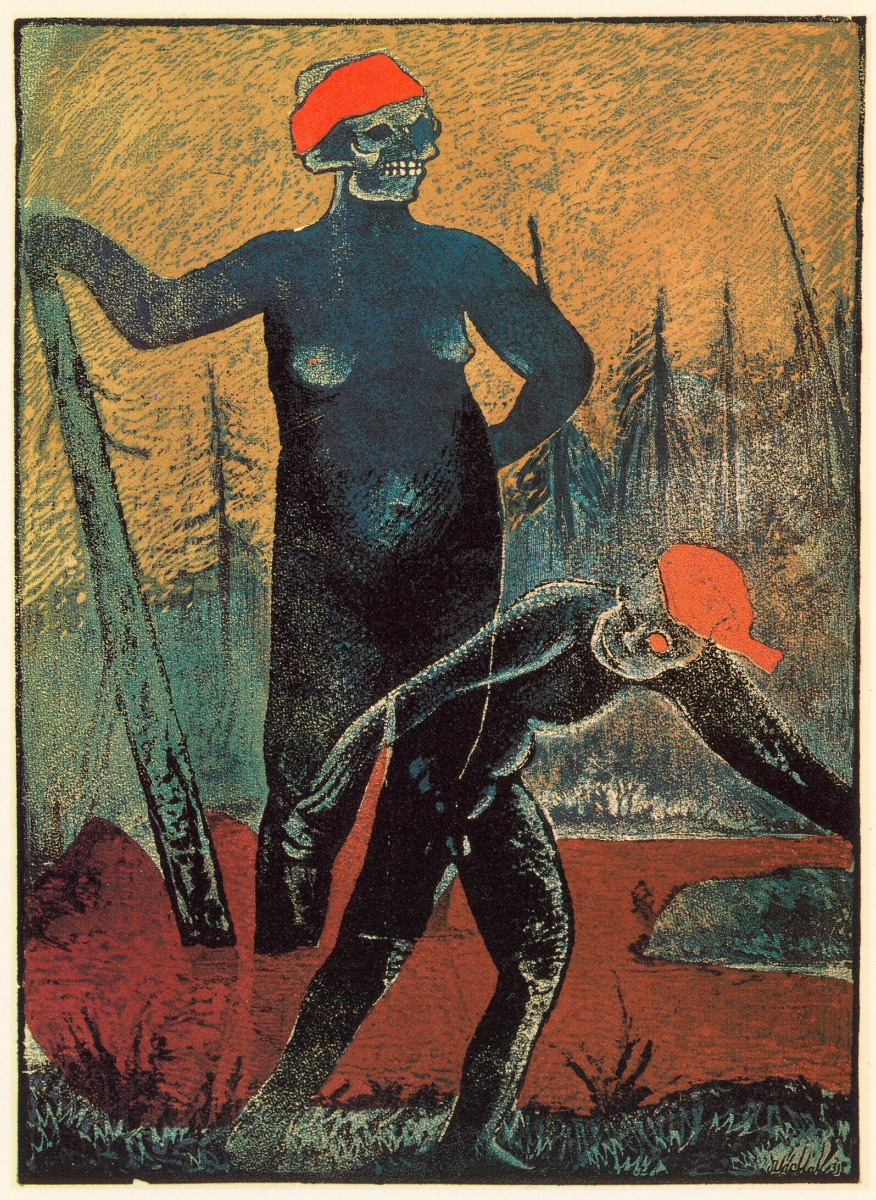 Moorland Demon, 1932
Moorland Demon, 1932"Josef Váchal (September 23, 1884 in Milavče near Domažlice – May 10, 1969 in Studeňany) was a Czech writer, painter, printmaker and book-printer.
Váchal was the son of Josef Aleš-Lyžec and Anna Váchalová - his parents never married. He was brought up by his grandparents, Jan Aleš and Jana Alešová, in the southern Bohemian town of Písek, where he entered grammar school but left it prematurely. In 1898 Váchal moved to Prague, where he studied bookbinding and befriended his father's cousin, the painter Mikoláš Aleš. He was influenced by Art Nouveau during that time.
In 1900 he wrote his first poems, by 1903 he joined the Prague Theosophy Society, in 1904 he entered the Painter School and later became a respected painter and graphic designer. In 1910 Váchal published his first two books. Between January 1912 and January 1913 he enjoyed a short but intense friendship with the mystical Catholic writer Jakub Deml. In March 1913, Váchal married Máša Pešulová, and began a friendship with the collector J. Portman; Portman's house Portmoneum is now the Váchal Museum in Litomyšl.
From 1916 to 1918 Váchal served as a soldier on the Italian front. During 1940, expressing resistance against Nazi occupation of Czechoslovakia, he moved from Prague to the village of Studeňany ('tusculum' or 'exile'). After the communist revolution of 1948 in Czechoslovakia, he became more socially and culturally isolated and his works were rarely seen in public. He lived in obscurity on the family estate of his partner, Anna Macková, in Studeňany. Even with the coming of Prague Spring in the late 1960s his situation didn’t significantly change. He was, however, awarded the state title of Meritorious Artist (Zasloužilý umělec) shortly before his death in 1969. He is buried in the village of Radim near Jičín, eastern Bohemia." - quote source
Artworks found at www.vachal.cz, Album of the Magic Search Exhibit. A video showcasing the entirety of a recently published book of Vachal's art can be viewed here.

No comments:
Post a Comment